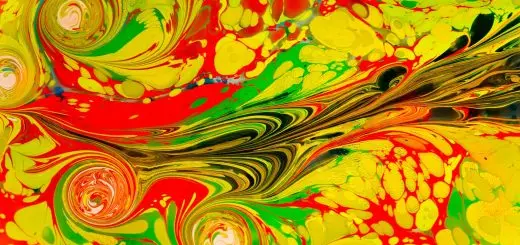What Are People from Spain Called? A Look at the Identity of Spaniards

Looking for more amazing products? Check out our online store and explore our collection here! Happy shopping!
Before diving in, please note: This post is for informational purposes only. If you’d like to know more about how we approach topics, feel free to check out our friendly Disclaimer Page.
Hey there, amazing readers! 
We’re committed to delivering quality posts, and your support (even just sticking around despite the ads) means everything to us. So, bear with us, and thanks for helping us keep the good vibes rolling. Now, on to the fun stuff!
TRANSLATE BUTTON AT THE END OF THE ARTICLE
When we think about the diverse countries of the world, Spain is one that stands out for its rich history, culture, and traditions.
As one of Europe’s most well-known and influential nations, Spain has a long and proud identity, and a key part of that identity is the people who call it home.
But have you ever wondered: what are people from Spain called?
Well, let’s dive into the fascinating answer to this simple yet intriguing question.
The Simple Answer: Spaniards
The most common term used to refer to people from Spain is Spaniards (in Spanish, españoles).
The word “Spaniard” refers to a person who is a citizen of Spain or has origins in the country.
It is a general term that encompasses the entire population of the country, no matter the region they are from.
Spaniards, much like people from any other country, identify with their national roots, but there’s an interesting twist when it comes to regional identities within Spain, as the country has a number of distinct regions with unique cultures, languages, and traditions.
Regional Identity in Spain
While “Spaniards” is the umbrella term for everyone from Spain, the identity of a person from a particular region of Spain can be much more nuanced.
Spain is made up of 17 autonomous communities, and each of these regions has its own unique history and cultural identity.
Many Spaniards proudly identify with both their regional and national heritage, and this can sometimes mean they use different terms to describe themselves.
People from Different Regions of Spain
Catalans (Cataluña): People from Catalonia in the northeastern part of Spain are called Catalans (in Spanish, catalanes).
The region of Catalonia has its own language, Catalan, and the people here are proud of their distinct culture and traditions.
Many Catalans feel a strong regional identity, and some even advocate for independence from Spain.
Basques (País Vasco): Those from the Basque Country in the north are known as Basques (in Spanish, vascos).
The Basque region is unique because the Basque language, Euskara, is not related to any other language in the world.
The Basques have a rich cultural heritage, and their sense of identity is deeply connected to their land and traditions.
Galicians (Galicia): People from Galicia, in the northwest of Spain, are called Galicians (in Spanish, gallegos).
Galicia is known for its Celtic roots, and the Galician language (Gallego) is widely spoken here.
Galicians have a strong connection to their ancient traditions, music, and food.
Andalusians (Andalucía): The people from Andalusia, located in the south of Spain, are called Andalusians (in Spanish, andaluces).
Known for their flamenco music, vibrant festivals, and Mediterranean lifestyle, Andalusians have a distinctive culture that is both passionate and inviting.
Valencians (Valencia): People from Valencia are known as Valencians (in Spanish, valencianos).
The Valencian community has its own language, Valencian, and a rich history tied to agriculture, art, and festivals like Las Fallas.
Mallorcans (Balearic Islands): People from the Balearic Islands, including Mallorca, Ibiza, and Menorca, are called Mallorcans (in Spanish, mallorquines).
While Spanish is widely spoken, the local language of the islands is Catalan (specifically, Balearic Catalan).
Language and Culture: The Key to Spanish Identity
While “Spaniard” is the overall term for people from Spain, their identity can also be defined by their region and language.
For example, although everyone in Spain speaks Spanish (or Castilian), many regions have their own regional languages.
These include Catalan in Catalonia, Basque in the Basque Country, and Galician in Galicia.
In fact, these languages are co-official in their respective regions, making language a significant part of the identity for many people.
The rich culture of Spain is another layer of identity that comes into play.
From the flamenco dancing of Andalusia to the running of the bulls in Pamplona, Spain’s cultural traditions are diverse and form a large part of how people see themselves.
The Role of Regional Pride in Spain
The strong sense of regional pride in Spain is something you’ll quickly notice if you visit different parts of the country.
People from each region often identify not only as Spaniards but also as Catalans, Basques, Galicians, or Andalusians, to name a few.
This regional pride is reflected in everything from regional festivals to political movements.
For example, in Catalonia, there has been a strong push for independence over the years.
Many Catalans feel a deep connection to their regional identity and want to preserve their cultural and linguistic traditions.
Similarly, in the Basque Country, the desire for independence is a significant issue, with the Basque language playing a central role in the community’s cultural revival.
However, it’s also important to note that despite the regional pride, most people in Spain still identify strongly with the national identity of being Spanish.
National pride runs deep, especially in the face of Spain’s rich history and global influence.
Conclusion
So, what are people from Spain called? Spaniards is the general term for people from the country, but that only scratches the surface of Spain’s complex identity.
Depending on the region, people from Spain may also identify as Catalans, Basques, Andalusians, Galicians, and many others, reflecting the rich tapestry of languages, cultures, and traditions that make up the nation.
Whether it’s their regional pride, their passion for their language, or their deep connection to history and culture, the people of Spain are as diverse and fascinating as the country itself.

The Enlightenment Journey is a remarkable collection of writings authored by a distinguished group of experts in the fields of spirituality, new age, and esoteric knowledge.
This anthology features a diverse assembly of well-experienced authors who bring their profound insights and credible perspectives to the forefront.
Each contributor possesses a wealth of knowledge and wisdom, making them authorities in their respective domains.
Together, they offer readers a transformative journey into the realms of spiritual growth, self-discovery, and esoteric enlightenment.
The Enlightenment Journey is a testament to the collective expertise of these luminaries, providing readers with a rich tapestry of ideas and information to illuminate their spiritual path.
Our Diverse Expertise
While our primary focus is on spirituality and esotericism, we are equally passionate about exploring a wide range of other topics and niches 

To ensure we provide the most accurate and valuable insights, we collaborate with trusted experts in their respective domains 
Our blog originally focused on spirituality and metaphysics, but we’ve since expanded to cover a wide range of niches. Don’t worry—we continue to publish a lot of articles on spirituality! Frequently visit our blog to explore our diverse content and stay tuned for more insightful reads.
Hey there, amazing reader! 
Check out our store here and take a peek at some of our featured products below! Thanks for being awesome!











